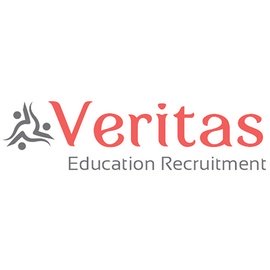So says Dr Christopher Lubienski, professor of education policy at Indiana University in the US, whose recent study into the situation unearthed some glaring findings.
Examining 162 key players across 30 different US think tanks and advocacy organisations, researchers assessed each individual via four metrics related to their public influence and four metrics to determine their relative scholarly expertise.
A ‘notable disconnect’ between the two was obvious, with just one organisation – the American Enterprise Institute – ranking in the top five for public influence as well as for expertise.
“…quite often this project illuminates cases where influence is clearly not matched by research expertise,” the research noted.
“For instance … the Manhattan Institute and the Center for Education Reform score relatively low on expertise but have a huge influence on education issues.
“On the other end, the Urban Institute has substantial expert capacity, but not as much impact as that might predict.”
Lubienski told EducationHQ that too often those shaping education policy decisions were driven by ideological agendas and pushed views that were skewed by the influence of private funding donors in the background.
Private interests are playing an ‘outsized role’ in public policymaking in general across the US, the researcher noted.
“Through think tanks and similar advocacy organisations, private interests are setting policy agendas, framing problems, raising (often unwarranted and baseless) concerns, producing or promoting sometimes shoddy research evidence to support their agendas, undercutting evidence where an actual research consensus exists, placing employees in key government positions, providing advice for policymakers, and in some cases even writing the public policies,” he said.
In education, think tanks aligned with the right and left are proffering a range of agendas that match with that of their funding donors, Lubienski said.
“For instance, many conservative think tanks will promote smaller government, and have an anti-regulatory agenda, while some on the left will promote union interests, reflecting the interests of their funders.”
He said think tanks often focus on a very specific issue as a way to advance a broader agenda.
“For instance, the conservative Manhattan Institute has been pushing a specific culture war attack on Critical Race Theory (CRT), even though CRT is not really an issue in American schools.
“But by doing so, they are seeking to undermine faith in public schools, and promote privatisation of education – something they have been pushing for years.”
Lubienski said that many organisations were hiring people for their media acumen, policy connections or their “ability to be rabble rousers”, rather than their ability to understand the research on the issues they purport to know.
And the media ought to do a better job of vetting the expertise of education policy influencers and spokespeople, the researcher argued.
“Think tanks still should have a seat at the table, since the ones that actually do research, they have important contributions to the discussion.
“But that said, journalists need to be very aware of the agendas that these groups represent and look for alternative and independent viewpoint as well,” Lubienski said.
In Australia, think tanks such as the Centre for Independent Studies, Grattan Institute, the Institute of Public Affairs, Australia Institute and the Whitlam Institute have contributed significantly to policy debates, and especially within big national reforms such as curriculum, testing, ITE training and school funding.
As Melbourne Graduate School of Education’s senior lecturer in education policy Glenn Savage has previously noted, we would be misguided to think powerful philanthropic groups who provide funding to think tanks are not gaining influence in Australian education policy in ways that resemble the American context.
Savage suggested that through generating research papers and opinion pieces, hosting lectures and advising policymakers, think tanks have influenced debates by “demonstrating an exquisite grasp of political timing and an ability to achieve media impact”.
Lubienski cautions that he hesitates to use the term ‘think tank’ at all.
“…there’s sometime not much thinking going on,” he explains.
“Instead, ‘thought tank’ might be better, since they are often pushing just one single idea, for example, school choice.
“But it’s also good to remember that there are more organisations than just think tanks.
“Advocacy organisations, media entities, philanthropies and so forth are often related and doing much of the same work.”















